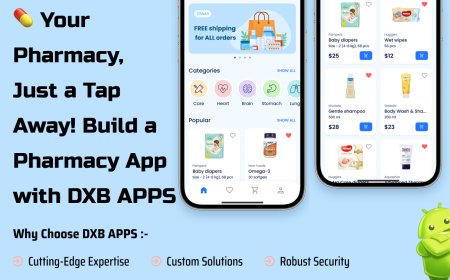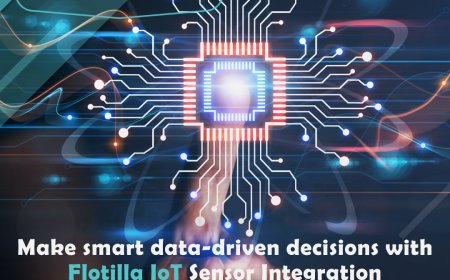The Future of DevOps Services: Trends to Watch in 2025 and Beyond
Here are the top trends shaping the future of DevOps implementation and what enterprises should watch out for.
DevOps has revolutionized the way organizations build, test, and deploy software. With growing demands for agility, faster release cycles, and improved security, DevOps services have become a critical component of modern IT operations. As we move into 2025 and beyond, the landscape of DevOps service providers is rapidly evolving to meet new challenges and opportunities.
Here are the top trends shaping the future of DevOps implementation and what enterprises should watch out for.
1. AI-Powered DevOps (AIOps) Is Going Mainstream
Artificial Intelligence is no longer just a buzzwordits becoming a core enabler in DevOps pipelines. From anomaly detection and root cause analysis to predictive scaling and auto-remediation, AI-powered DevOps services are helping teams reduce manual effort and improve decision-making.
DevOps service providers are integrating AI to enhance observability, optimize resource utilization, and enable self-healing systems, making DevOps more intelligent and proactive.
2. DevSecOps Becomes the Default Standard
Security is being baked into every phase of the development lifecycle through DevSecOps. As cyber threats grow more sophisticated, organizations can no longer afford to treat security as an afterthought.
By embedding security controls into CI/CD pipelines, DevOps consulting services now focus on continuous compliance, automated vulnerability scanning, and policy enforcement. In 2025, DevSecOps will be a baseline expectation for any robust DevOps implementation.
3. Platform Engineering Gains Momentum
To standardize and simplify developer workflows, many enterprises are shifting toward platform engineering. This involves building internal developer platforms (IDPs) that offer self-service capabilities and reusable components for infrastructure provisioning, deployment, and monitoring.
DevOps service providers are playing a vital role in helping organizations design and scale these platforms, enabling consistency and speed across teams.
4. GitOps Drives Infrastructure as Code (IaC) Adoption
GitOps is emerging as the preferred model for managing infrastructure using Git repositories as the source of truth. It supports faster rollbacks, better version control, and increased automation in managing cloud-native environments.
Leading DevOps consulting services are now incorporating GitOps practices to improve visibility, reduce drift, and simplify multi-cloud orchestration.
5. Cloud-Native DevOps Services Expand
With the rise of containers, microservices, and Kubernetes, cloud-native DevOps services are becoming essential. In 2025, the focus will be on enabling seamless CI/CD workflows across hybrid and multi-cloud environments.
DevOps service providers will offer deeper expertise in Kubernetes management, serverless computing, and service mesh integration to help enterprises modernize their applications effectively.
6. Low-Code & No-Code Integration in DevOps Pipelines
As enterprises aim to accelerate development, low-code and no-code platforms are being integrated into DevOps workflows. This trend empowers citizen developers while maintaining centralized governance through standardized pipelines.
Modern DevOps implementation strategies will need to adapt to support this growing intersection between traditional development and low-code automation.
7. Outcome-Based DevOps Consulting Services
In the future, organizations will seek more than just tool implementationtheyll demand business outcomes. DevOps consulting services will shift their focus to measurable KPIs such as time-to-market, mean time to recovery (MTTR), deployment frequency, and customer experience.
Service providers will be expected to deliver DevOps solutions that align with business objectives, rather than just technical metrics.
Final Thoughts: Partnering for the Future
As the DevOps landscape grows more complex, choosing the right DevOps service providers becomes crucial. Whether you're scaling your CI/CD pipelines, integrating security, or adopting AI-driven automation, the future of DevOps lies in strategic partnerships, not just tools.











































